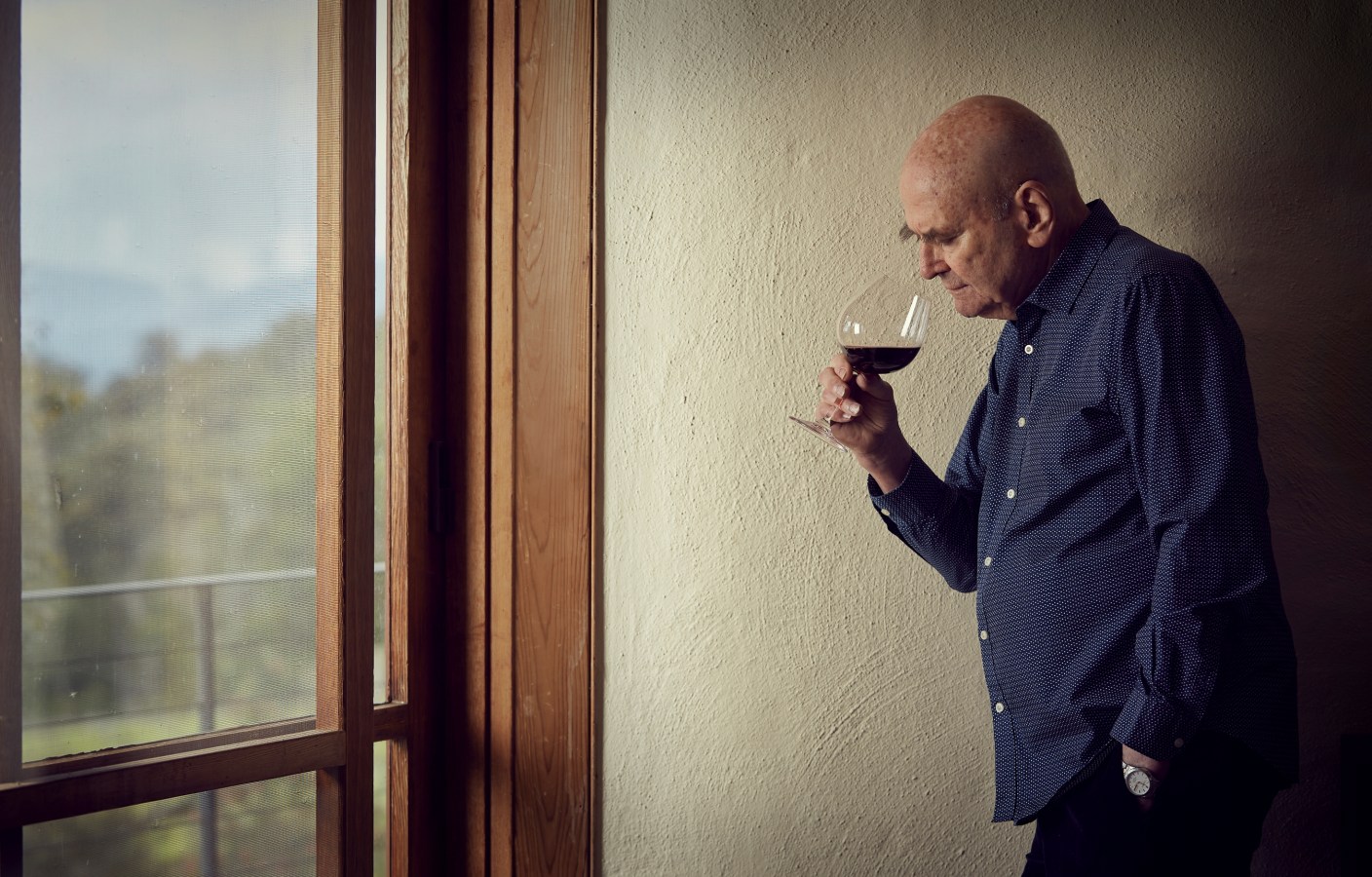Hardy Brothers is one of the very few Australian businesses that can boast well over a century of operations, as well as clientele that includes several generations of the British Royal Family.
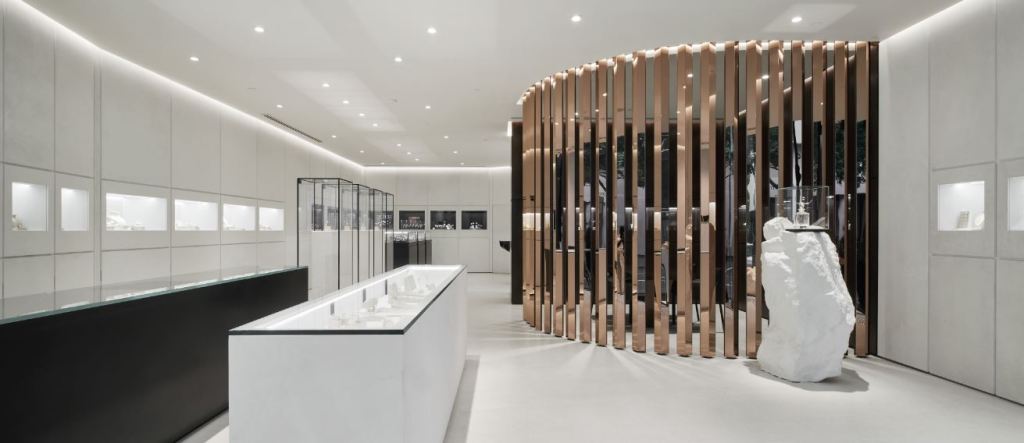
Hardy Brothers exclusive flagship boutique.
Hardy Brothers is one of the very few Australian businesses that can boast well over a century of operations, as well as clientele that includes several generations of the British Royal Family.
Celebrating its 170th birthday in 2023, even more impressive is that this business has (mostly) remained a family business over that period, and continues to offer the same fundamental product: luxury jewellery and stunning timepieces.
Now, key to the future of Hardy Brothers, are fifth-generation members of the Queensland family-owned jewellery chain Wallace Bishop – brothers Alexander and William Bishop, with their father Stuart Bishop as CEO. The brothers’ grandfather Wallace Bishop acquired Hardy Brothers in 1997. Described as “the driving force, the inspiration,” he sadly passed in 2022, aged 88.
Alexander Bishop is Operations Manager, and knows just like how business skills can be passed through families, so too can customer loyalty.
“We will have many first time clients come in and say, ‘I told my grandmother I was getting engaged, and she got her ring from here,’” he tells Forbes. “Their grandmother remembered the experience with Hardy Brothers and then passed on the recommendation.”
That’s not to say things haven’t changed. Last year Bishop oversaw a major redesign of Hardy Brothers’ flagship stores, modernising its look and appeal, while also embracing and respecting its heritage.
Bishop led the transformation knowing the responsibility his generation has to remain true to the values that clients have expected over its full history, with a push to ensure they could continue to enjoy the creative experience that comes designing fine jewellery.
“We wanted to bring back that element of artisanship and uncompromising quality, . Our internal motto is ‘The Custodian’, which means the brand has a responsibility to uphold the values and traditions that have defined our history and assume an active role in shaping the future of the industry by embracing change and new notions of luxury.
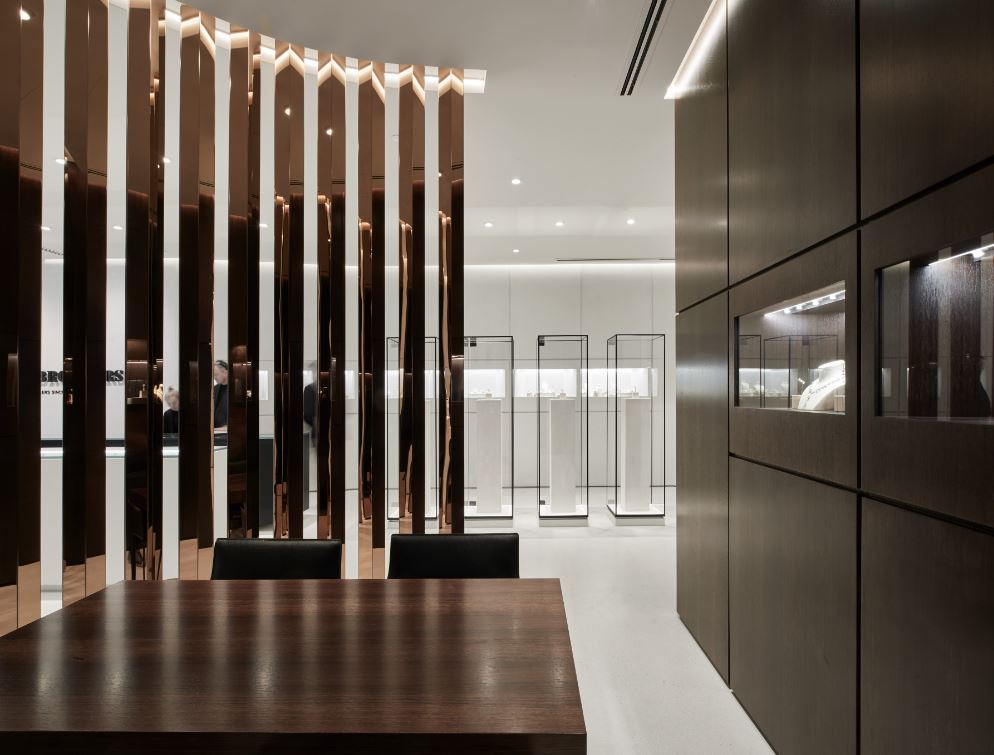
Hardy Brothers have recently undergone a redesign of their flagship stores
“From a client experience perspective, we wanted to showcase our jewellery as the focal point. The jewellery is the art and the store should compliment that and elevate the experience We took cues from international art galleries where the experience is presented around the art.”
Importantly, they also wanted to respect the demographic shifts in customers.
Bishop says he and his brother grew up around the craftsmanship and business of jewellery, with conversations over the kitchen table with his father and grandfather, and research pursued on every family trip to explore how different brands were presented internationally.
He has seen the evolution of customer desires and needs change extensively since his childhood. Particularly now, where he sees a growing market of younger women selecting and purchasing jewellery for themselves, in recognition of a career milestone, a significant personal achievement, or just because they prefer the quality. .
“We still rely so much on his experience,” Alexander says about his grandfather. “We have been making changes to our product and to our stores, but we won’t change who we are. We’ll always aim to provide quality jewellery and experience, so the client can make an informed and confident decision.”
And in continuing his grandfather’s legacy, Bishop says they plan to always keep moving to deliver the best possible experience. As Bishop’s father Stuart Bishop said on Wallace’s passing in 2022, “His favourite saying was that there were 24 hours in every day, use every single one of them wisely.”
From 1853 to Christopher Skase and back again
The history of Hardy Brothers is one of dynasty and legacy and carries plenty of ups and downs.
With its first showroom opened in Hunter Street Sydney in 1853 by Englishman John Hardy, the business Hardy Brothers has been an Australian company since 1913. But it’s faced a number of challenging headwinds around ownership changes, including a nine-year period and break in family succession when it was purchased by Qintex, run by the notorious Christopher Skase. That stint saw the business losing around $1 million a year due to attempts to broaden its image that alienated existing customers. When your customers have included a number of British sovereigns over generations, sticking to what you’re good at matters.
John McKinney, along with his three daughters Margot, Sally and Jane spent 18 months negotiating with Qintex to buy the business back from Skase, and then took just six months to return it to profit. Each of the three daughters took management of one of Hardy Brothers’ three flagship stores. They had to cut costs, renegotiate leases, strip back expenses and establish new automation processes to support orders.
Then they sought to reconnect with its loyal customers who had been driven out by the Skase’ push for the mass market, chain-store-like appeal that had seen a shift away from prestige gems and towards standard diamond rings.
As Margot McKinney told the Australian Financial Review back in 1997, “It’s easy to take a business downmarket. It is a much more difficult process to re-establish an image.”
But later in 1997, the Brisbane-based Wallace Bishop, who also helmed a family-run business – only this time with boys – purchased Hardy Brothers from John McKinney, with the management of the business later going to the younger brother of the family, Stuart Wallace. Stuart Wallace is the recipient of a prestigious De Beers jewellery design award, and remains CEO today, with the support of his two sons.
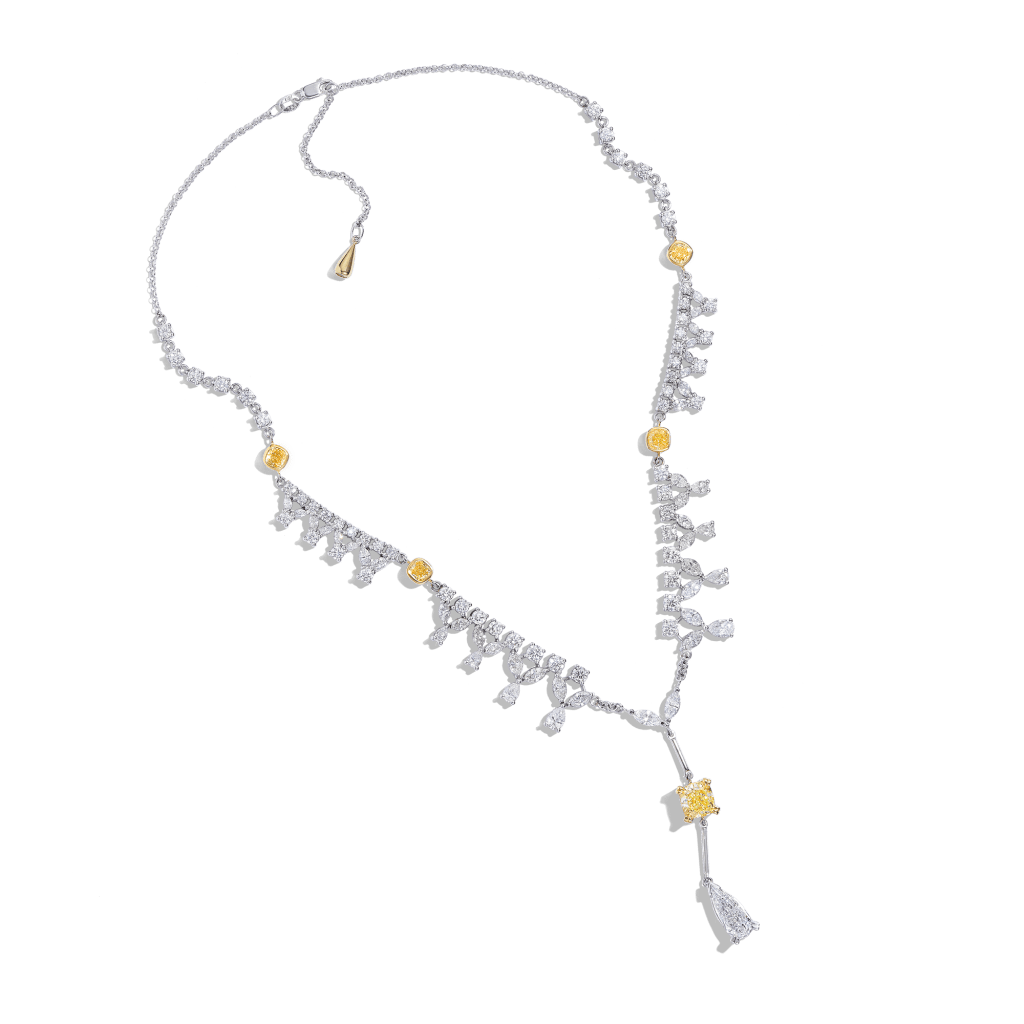
Hardy Brothers 22.23ct Yellow and White Diamond Vault Necklace
Hardy Brothers retains its bespoke services of their history, enabling clients to get creative in imagining pieces that will last a lifetime and pass through the generations. They continue a personalised service, with direct access to their master craftsmen, and a commitment to sustainability that covers the procurement of precious materials, design and manufacture aiming to reduce their environmental impact, while leaving a positive and enduring legacy on culture.
This connection to quality, and to the design process, is particularly important in a retail world now dominated by influencer marketing, social media stores, and the ability to buy mass-produced jewellery fast.
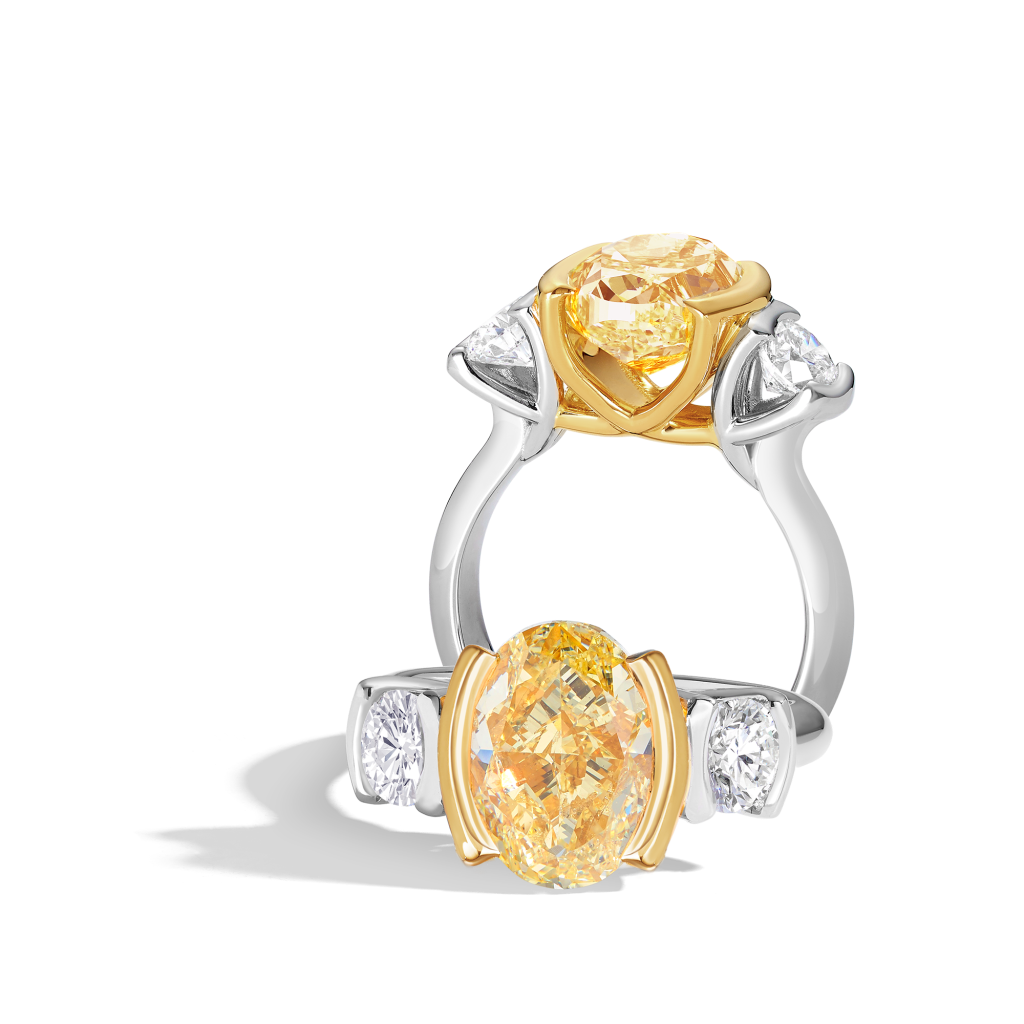
Hardy Brothers 6.02ct Yellow and White Diamond Vault Ring
Alexander Bishop says the history they can tap into helps them meet the current moment of retail that’s dominated by fast and immediate transactions – by presenting unique and alternative options.
“Hardy Brothers has been doing this for 170 years, we want new customers to feel that history, to know the legacy we have to make clients feel comfortable, educated and supported on buying a great piece of jewellery. We want them to know we’re always buying the best quality products, and we want them to enjoy and remember the experience, so they might then tell their own grandchildren about it.”
While the business has been in the hands of different families, Alexander Bishop knows the value of change and evolution, as well as connection to those who’ve been before you.
“We always say, ‘this is not ours, it’s our responsibility. So we do our best until the next generation comes along.”

